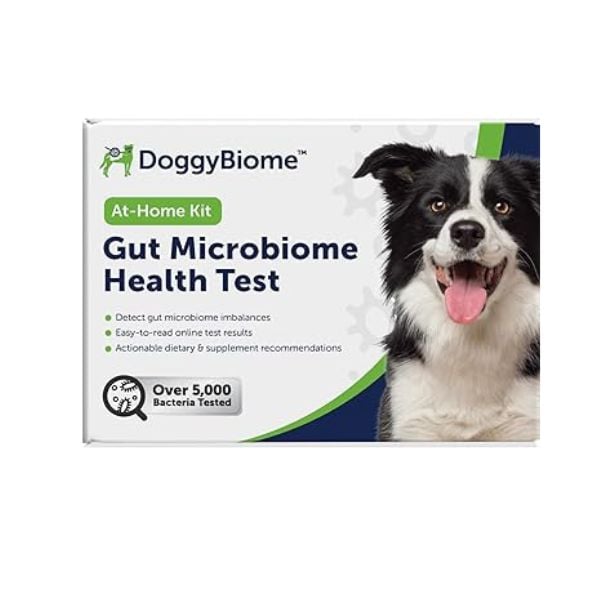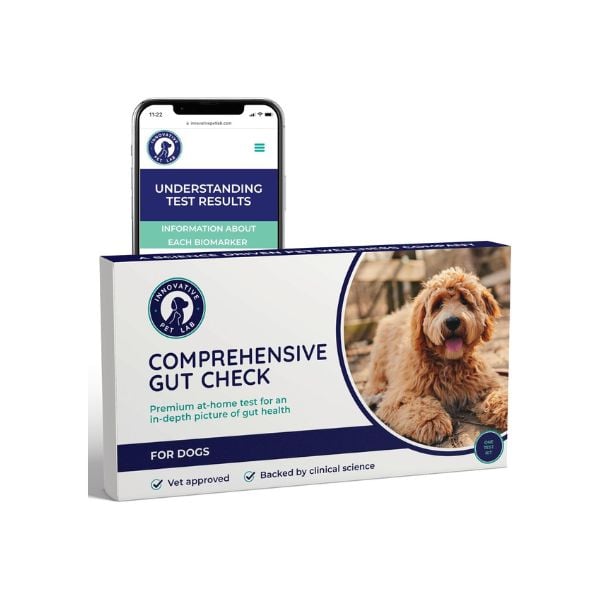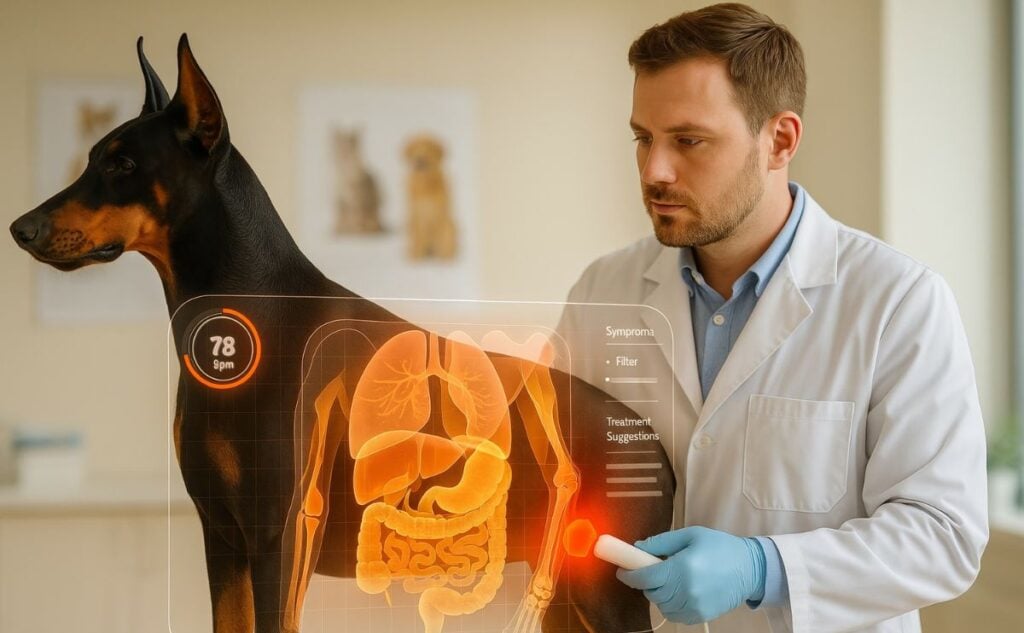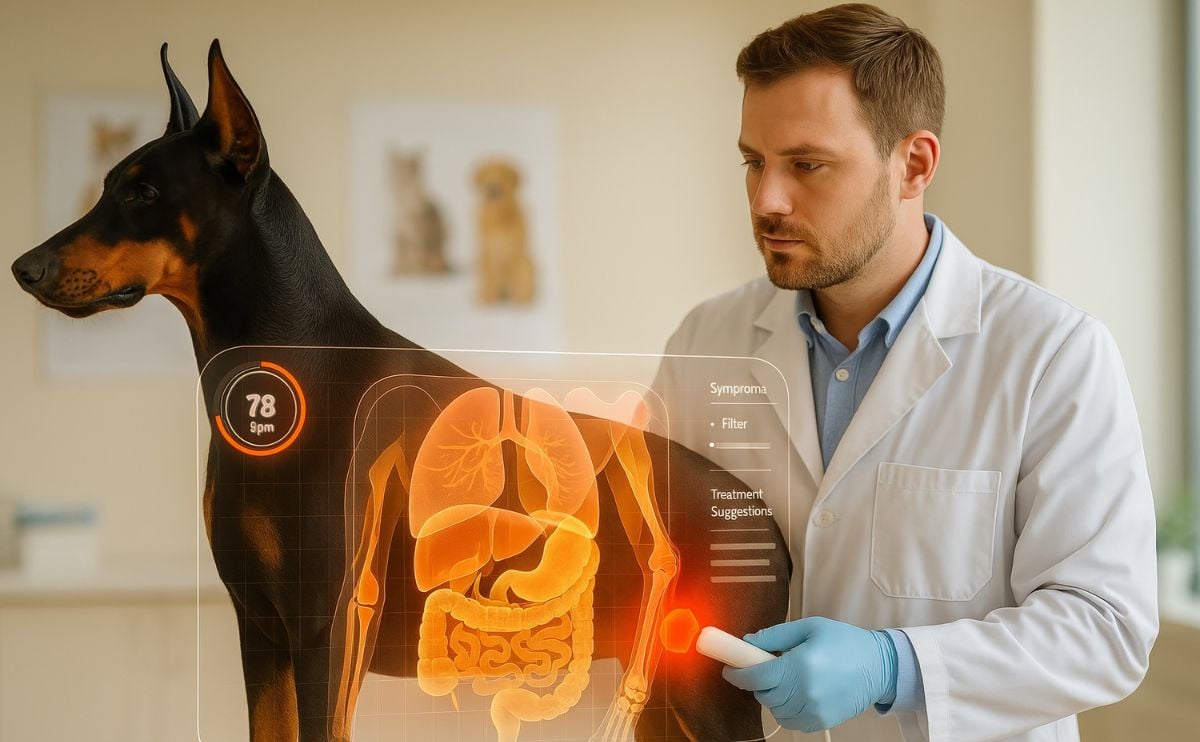In humans, good gut health is widely recognized as crucial, and there are numerous products on the market to combat unwanted gastrointestinal symptoms and restore the balance of good bacteria in the gut. But what about dogs? Is good gut health essential for them too? Let's explore the importance of a healthy gut in dogs and how you can support it in your furry friend. You can even start with an at-home gut microbiome test to assess your pup's gut health.
| Best Gut Microbiome Test | Most Comprehensive Gut Test |
|---|---|
 |  |
| AnimalBiome | Innovative Pet Lab |
| Visit Website | View on Amazon |
| Read Review | Read Review |
Why Is Gut Health For Dogs Important?
Digestive health for dogs is just as vital as for people. Without good digestive function, dogs can't obtain the nutrients they need from their food and may develop unpleasant or concerning symptoms. It's not just the risk of malnutrition that's a worry when it comes to dog gut health, though.
Just like yours, your dog's intestinal walls form a physical barrier, keeping unwanted germs out. They also have many immune cells at the interface, ready to attack any pathogens that try to break through the intestinal wall into the tissue or bloodstream. So, it's clear why maintaining your dog's (and your) gut health as well as possible will be beneficial for preventing illness and ensuring good nutrition.

What Is Good Gut Health?
Good gut health in dogs requires a good balance of gut microflora (known as the gut microbiome) – a collection of bacteria that are vital for both digestion and immunity. Good gut health also depends on the absorption of nutrients, which requires adequate digestive enzyme production and a large surface area of healthy cells lining the villi of the gut wall. If the microbiome is insufficient or unbalanced, or if the intestinal walls are too thick for absorption to occur, a dog's gut health will be poor.
What Are The Signs Of Poor Gut Health In Dogs? 7 Symptoms
There isn't a single symptom associated with poor gut health in dogs. If your dog is affected, you might notice several symptoms, and the severity could range from very subtle changes to obvious and concerning. Here are some signs to watch for:
1. Diarrhea
If the digestive function of your dog's gut isn't as good as it should be, they might experience diarrhea due to an inability to absorb food that is only partially digested. If the gut lining is inflamed, thickened, or diseased, absorption will be hindered, and loose stools will be the result.
2. Vomiting
Although vomiting suggests a problem with the stomach rather than the intestines, this isn't always the case. If gut movement or digestion is slow, the backlog may lead to stomach irritation, nausea, or vomiting. Similarly, certain conditions that affect the gut will also affect the stomach, including injuries from sharp or abrasive foreign material or caustic substances that have been ingested.
3. Weight Loss
Poor gut health means a lack of digestion or absorption of nutrients from food. So, it's not surprising that some dogs with poor gut health lose weight, even if they have a great appetite. If your dog's weight has always been on the low side, or if they have experienced a gradual decline in gut health, you might not notice active weight loss but more a low body condition score and a failure to gain weight even though they are eating.
4. Change In Feces Color
In addition to a change in fecal texture caused by diarrhea, poor gut health may also lead to a change in fecal color. The stools may become paler or yellow, or if there is inflammation or ulceration, you may notice fresh red blood or black digested blood. For this reason, it's a good idea to familiarize yourself with the appearance, color, size, texture, and frequency of your dog's feces so that you can spot anything outside of the norm quickly.
5. Flatulence
If your dog has gas, it's often pretty unpleasant. You might find that your dog passing wind clears the room in a flash when you're entertaining guests! However, frequent and smelly flatulence or regular or severe bloating, especially if it's unusual for your dog, is not something to be ignored. It could be a sign of a gut upset, poor gut health, or something more serious like bloat or a twisted stomach.
6. Reduced Appetite
As humans, we don't usually feel like eating when we have gastrointestinal symptoms, and it can be the same for dogs. If your dog is feeling nauseous or bloated, they may not feel like eating much. However, when it comes to appetite and poor gut health, the opposite can also be true.
7. Ravenous Appetite
It might seem counterintuitive, but if your dog has poor gut health, they might actually have a ravenous appetite. You might even find they scavenge for food and eat things they shouldn't, all as a way to try to get the nutrients that their body is lacking.
My Clinical Experience
I once treated a Labrador with chronic diarrhea and low body weight, which turned out to be due to an allergy to chicken. The dog was losing weight because his intestine was too inflamed to absorb the nutrients from the food he was eating. He was ravenously hungry and was constantly licking the floor, rooting in the dirt, and chewing on wood in the garden.
Thankfully, once the chicken was eliminated from his diet, his diarrhea resolved, and his weight started to creep up within a month. His owners were so pleased when he stopped trying to eat things around the house!
How Can I Check My Dog’s Gut Health?
If you suspect your pup's gut health is off-balance or just want to make sure it's healthy, you can do an at-home gut microbiome test. By sending in a small stool sample to the company's laboratory, scientists can help detect gut imbalances and identify problematic bacteria. An at-home gut microbiome test isn't meant to replace getting a diagnosis and treatment from your veterinarian, but you can share the test results with your vet to help you and your vet develop a treatment plan.
AnimalBiome Gut Health Test For Dogs Review


